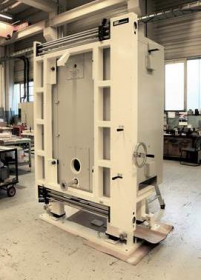BB Engineering GmbH delivers melt filter for PET recycling system to Indorama Polyester Industries
BB Engineering GmbH (Germany) delivers a melt filter for recycling PET flakes to polyester manufacturer Indorama Polyester Industries (Thailand). Indorama will be using the type NSF38 filter in its recently assembled recycling system in order to produce rPET granulate from flake PET bottle waste. The NSF38 filter enables continual filtering – in other words, the system switches from one filter to the other during the process without the need for conversion shut-downs. The filter allows the processing of consumer waste for example, in the form of shredded PET bottles into new, high-quality rPET granulate. This granulate is subsequently processed into manmade fibers in spinning systems.
The NSF38 is a switchable filter with a filter surface area of ap-prox. 16 m2 on each side, with throughputs of between 1,000 and 1,900 kg/h. The filter inserts each contain 19 pleated filter candles (60 x 1,000mm Ø). The filter medium comprises a sin-tered metal fiber nonwoven with a filtration fineness of 25 μm. This ensures that the melt remains free of contaminants and gel particles, which in turn enables the production of high-quality end products.
BB Engineering GmbH








